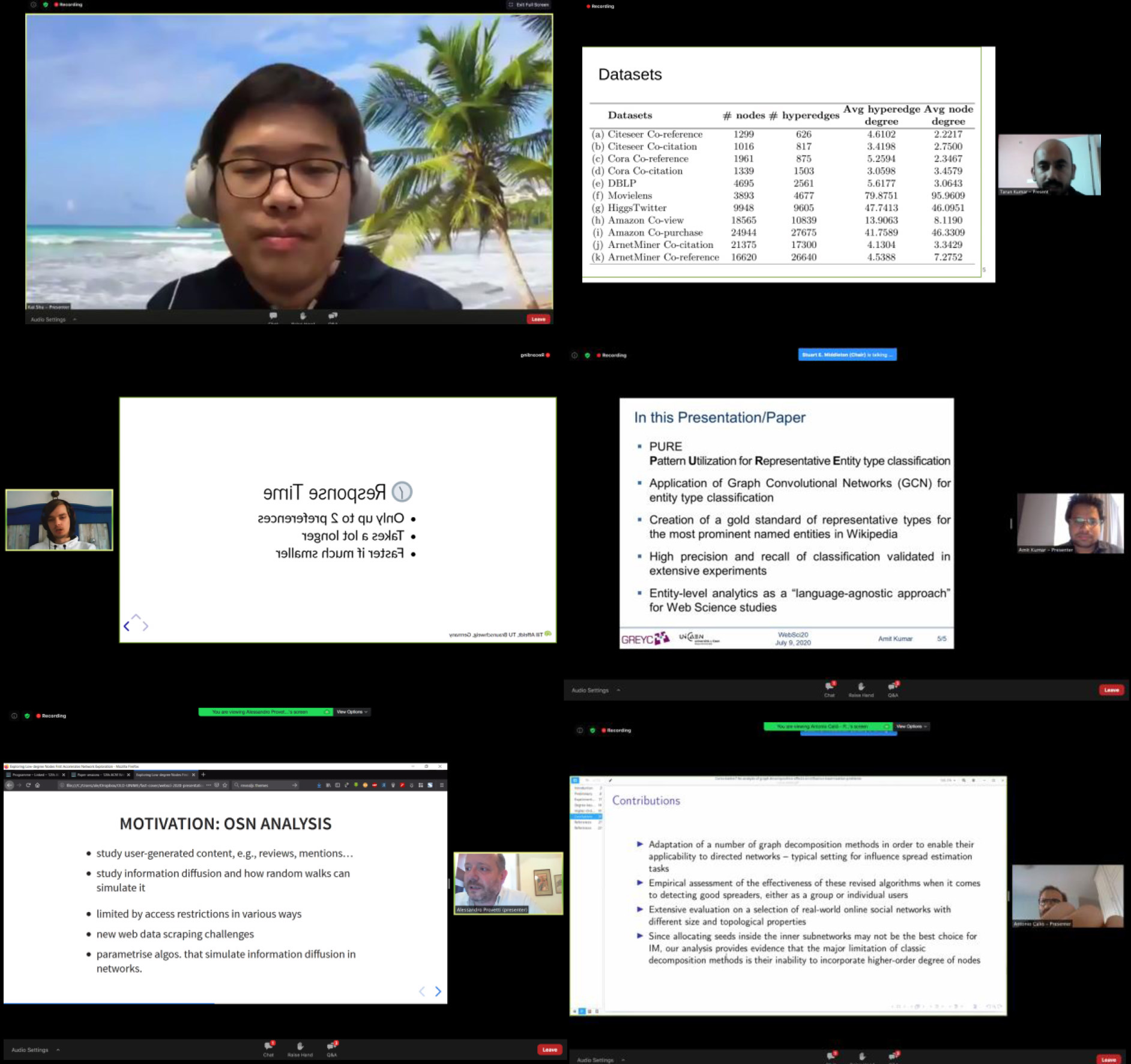#WebSci20 Paper Session 3 – Networks by Juljan Krause
Posted on behalf of Juljan Krause
Paper Session 3: Networks
Session Chair: Stuart Middleton
It was all nodes, edges, webs and cores in today’s packed paper sessions on networks. The six presenters were asked to give an overview of 5min each (the full 20-min papers are available on the conference website). Kai from Arizona State University introduced his team’s work on ‘Joint Local and Global Sequence Modeling in Temporal Correlation Networks for Trending Topic Detection’. Search engines create a huge amount of data every day so detecting new and relevant topics is of great relevance to service providers, eg for Yahoo and Google to capture early trends in important social issues such as the recent protest movements.
Kai introduced a new approach to this non-trivial task based on their LGRank framework. Next up was Tarun from IIT Madras on “Hyperedge Prediction using Resource Allocation”. Hypergraphs help represent superdyadic relations such as biological pathway signalling where a hypergraph predicts the most likely hyperedges when datasets are so large that going through them manually becomes impossible. Next one up was Till from TU Braunschweig on “Preference-driven Control over Incompleteness of Knowledge Graph Query Answers”. They designed a new operator that combines structural preferences for querying database models with SPARQL which promises to be considerably more efficient.
Next, Amit from the University of Caen Normandie talked about “Exploitation of Patterns in Entity Type Graphs for Representative Entity Type Classification”. They investigate the semantics of web content via named entities. This is to create a new standard for representing the most prominent named entities on Wikipedia. Next, Alessandro from Birkbeck College presented work on “Exploring Low-degree Nodes First Accelerates Network Exploration”. They study the information diffusion of user created content. Their algorithm presents counter-intuitive solutions to optimisation problems of covering eg news websites. Finally, Antonio from the University of Calabria talked about “An analysis of graph decomposition effects on influence maximization problems”. The idea is to characterise the coreness of highly influencing nodes and propose an adaptation of existing methods. This was a fast-paced session with tons of teasers to really exciting work so do make sure you check out the detailed conference presentations on the website.

